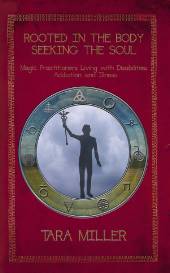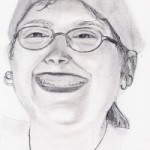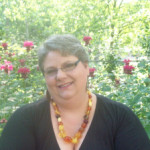There are a plethora of experiences within the Pagan community, and this has become a focal point of many different discussions within the last several years. From privilege, racism, hate, disabilities, and gender discussions, our community has seen some recent surges in dialogue around macro level social issues within our greater society, as they apply to us. The increasing population of people that are drawn to Paganism, nature based spirituality, and/or polytheism, has brought additional discussions of need and equal access to community. The complexity of intersectionality has become more visible, and these complexities are being addressed with resources, and publications.
 Immanion/Megalithic Press released their newest anthology, this one addressing Pagans with disabilities. Tara Miller is the editor of Rooted in the Body, Seeking the Soul; Magic Practitioners Living with Disabilities & Illness, released on November 23, 2013. This anthology has been in the works for several years, and is a collection of stories, interviews, and rituals addressing living with illness, disability, and/or healing as a Pagan practitioner. Taylor Ellwood, managing Non-Fiction Editor and co-owner of Immanion Press, talked with me about choosing to publish books that address nitch topics, and books that address social issues within the community, to support these much needed conversations.
Immanion/Megalithic Press released their newest anthology, this one addressing Pagans with disabilities. Tara Miller is the editor of Rooted in the Body, Seeking the Soul; Magic Practitioners Living with Disabilities & Illness, released on November 23, 2013. This anthology has been in the works for several years, and is a collection of stories, interviews, and rituals addressing living with illness, disability, and/or healing as a Pagan practitioner. Taylor Ellwood, managing Non-Fiction Editor and co-owner of Immanion Press, talked with me about choosing to publish books that address nitch topics, and books that address social issues within the community, to support these much needed conversations.
One of the reasons Immanion Press is interested in addressing these issues is because when such issues aren’t written about and explicitly explored, it is much harder to develop a conversation or push for change in the community. I think it is all too easy to ignore such issues, but when these issues are ignored they poison our community. As a publisher, I’m interested in getting a variety of voices and perspectives into print in order to start conversations around these issues. I feel that by publishing anthologies such as Rooted in the Body, Seeking the Soul and Shades of Faith, what is ultimately happening is much more than just publishing a book of articles. What is happening is that the texts take on a life of their own via the conversations people have around them, and through the writing that is generated as a result of the inspiration these anthologies prompt in both writers and readers.
Tara Miller is the writer of Staff of Asclepius blog on Patheos Pagan page, a blog that started in 2010, and is written about and for Pagans with Disabilities. Tara has been quite open about her personal struggle with disability as a result of her diagnosis of Turner Mosaic. Part of her biography on the website states, “I have Turner Mosaic which created a massive failure of my endocrine system causing many health problems. I am now considered medically disabled. Disabled was not an easy word to be associated with and it wasn’t until I accepted this that I began to find ways of living a fuller life.” She goes on to talk about being inspired by other Pagans who struggle with mental, physical, and psychological disabilities within the Pagan community.
In exploring some of the complex issues at hand, I reached out to several of the authors in the anthology to talk about some of the reasons this topic is important to them.
Tara Miller
Why do you feel that this anthology is important to the Pagan community at large?
It is important because it will share the unique voices of individuals who are disabled, have an addiction, or illness. The Pagan community can learn from the essays and poems what it’s like to be a disabled etc. Another goal is to help disabled people find comfort in the fact that they are not alone. Covens, circles, temples or any other type of magical group can use it as a resource toward understanding members or potential members with disabilities.
How has being disabled impacted your spiritual path and the way you approach Pagan practice?
I have Turner Mosaic which caused a severe failure of my endocrine system. That means I have diabetes and hypothyroidism and a lowered immune system. I also have epilepsy and PTSD (Post Traumatic Stress Disorder) from childhood abuse. Combined it means it’s easy to be depressed. To find myself in the dark feeling worthless or afraid. I’ve learned from teachers and spirit guides that the most important thing a human can do is center their mind, body, and spirit. When you are in physical pain, inner turmoil, or both it seems impossible to do. That’s why I’ve developed a Pagan practice where I meditate for a few moments every day. I’ve been practicing more and more since I was twelve or so. Now it’s daily. This makes it easy to enter a trance when I want to do deep ritual work or astral projection.
Do you feel that those who are disabled within the community are often without a voice? And if so, what do you think will support positive change in this area as a whole community?
There are two reasons they don’t have a voice: One is they don’t speak up about their needs at rituals and festivals. The second is when they do speak up they are told “Sorry, we can’t do that.”
What needs to happen is Pagans in the Deaf community and those who are disabled need to raise their voices, let volunteers know what they need. Then organizers need to agree to work with the community and everyone dig into their pockets a bit to get things done.
The anthology has numerous stories from those who have had to work through the challenges of being within the Pagan community, and have a disability. Author and mother Janet Callahan is among the writers in this anthology. She also wrote a recent ebook, Pagan Parenting in the ICU, after navigating the system for both of her children at birth. She writes on her own blogs about raising medically fragile and medically complex children as a Pagan parent.
Janet Callahan
My piece is called “Parenting Disabled Children” and I’m also interviewed in the anthology. Mostly, it’s about the choices our family makes when it comes to balancing our faith and our children’s medical needs. Before we had children, we were very open and fairly public about our faith. Now, we are less so, particularly in our home – something we never thought we’d do.
Why do you think an anthology like this is important to the growing needs of our community?
For me personally, it’s important because we are raising our children in our faith, and trying to get them out to community events, and finding that the community often isn’t prepared to deal with disability – and all it takes is an illness or accident for any of us to become disabled. I think it’s important for groups and events to be aware of the many different needs within the community and this anthology is a starting point for that. I also think that it helps us to consider how health, both physical and mental, affect our faith, and how groups may shut out people based on their health because of opinions about what constitutes wellness.
Lydia Crabtree has been writing about family and disability for years on her blog and now in her new Agora Column on the Patheos Pagan site. As a practicing Pagan that has been living with multiple disabilities, Lydia has often talked about the complexity of balancing spirituality with such conditions.
Lydia M. Crabtree
My piece is called Turning Disability into Opportunability. My piece address the idea that those struck by disability often are also incapacitated by shame and fear. It asks and addresses the question, “If we cast a spell of healing and it doesn’t work, then what is it?” Guided by the natural world, I seek an answer to that question and come up with several adaptations those of us with disability can utilize. One of them is the idea that disability does not equate to dysfunction. It instead is an opportunity to learn and teach from a different perspective.
It has been my personal experience that a large subset of paganism is those of us who have disability – opporunability, if you will. For a long time, sometimes out of a lack of education into disability and its toll on the disabled, sometimes out of fear of hurting feelings, this subset has had no voice.
This anthology puts a stop to this. It gives an avenue for discussion that did not exist on this scale before. Much like Shades of Faith has taken Daughters of Eve to the next level, Rooted in the Body takes Tara Miller’s blog, The Staff of Asclepius to the next level. Her work finally has spurred a discussion on larger scale by persons who are disabled and those who treat the disabled from a distinctly pagan perspective.
Lisa Spiral Besnett, author of Manifest Divinity from Immanion Press, is also a contributed to the anthology. Besnett has traveled to many different Pagan events and festivals, while navigating the needs of a disabled child, and balancing her own health.
Lisa Spiral Besnett
I put in a poem – an elemental blessing. I wrote it 25 years ago. When I was pregnant with Orion I got my first taste of what living with a chronic disability would be like. I knew it was temporary (theoretically it would be all over when I had the baby -little did I know). I was so sick and there was so much I simply couldn’t do. There were days (months) where I was too weak to pour myself a glass of milk (I literally couldn’t lift the carton). When I went anywhere out I had to rent a wheelchair for the day. Then I had a premie with some significant issues. Orion had 5 surgeries in his first 6 months. We spent a LOT of time in the neonatal ICU. It wasn’t just my baby, it was all of these precious little souls. There were crack babies, and incubator babies, and babies with severe deformities. What would their lives be like? Where was the joy and the hope? So I wrote the poem. I think our community prides itself on it’s empathy, but it’s hard to be empathetic to something totally outside of your own experience. Instead there’s a lot of “I’m so glad I’m not you” sympathy. Attempts to accommodate often involve presumption and pity rather than dialog and addressing actual need. I’d like to think this piece will help both issues. It will provide a path to empathy as well as being a starting point for discussion. As our community ages we will have more members with “special needs”. They may not see themselves as disabled, but will still need some extra support. Any Mom pushing a stroller will tell you handicapped ramps are the bomb. Making an accommodation for someone who can’t stand through ritual makes it acceptable to sit if you need to. Opening ourselves up to creating access makes life easier for everyone in the long run.
Accommodating the identified needs of those who have disabilities is not just a Pagan issue, but has been a concern in greater society as well. Strong advocacy supported laws and bills, like the American’s Disability Act, that supported accommodations for those who needed them. As the various factions within the Pagan community become more vocal, we are finding that this community thing is not as simple as previously assumed. With current data on the Pagan community, we do not have any statistic about the amount of people that require special needs around mental, or physical disabilities within the community. At some point it would be good to see the community invest in ways to collect data about our practitioners, and have data that can be used in a variety of ways. Until then, there appears to be an overall need for empathetic exchange, and more discussion for those with disabilities and how to be more present in the overall needs of our community members.
I asked Ellwood what he felt anthologies like this contribute to the community.
Anthologies such as Rooted in the Body, Seeking the Soul, Womens Voices in Magic, and Shades of Faith are intentionally designed to explore the social issues mentioned in your question above. I feel that the contribution to the Pagan community is that each of these books helps to raise awareness around social issues that are implicitly part of our mainstream culture and the Pagan subculture, but are not always explored as consciously as they should be. These anthologies focus on raising conscious awareness and starting uncomfortable, but needed, conversations that need to happen in order to help the Pagan community recognize where it can grow. For example, Rooted in the Body, Seeking the Soul focuses on Pagans with Disabilities and addresses issues such as the misconception that if you are ill or disabled, you must not be doing something right with your spirituality. The exploration of such misconceptions and social issues is a sign of a healthy community, because it shows that the community can be uncomfortable and learn from those issues instead of blindly supporting them.
This anthology has 21 pieces inside, giving a much needed, diverse exploration of Pagans who come to community with some physical or mental uniqueness. It is my hope that this anthology supports genuine understanding and support in making sure there is a place for everyone in our circles, discussions, or celebrations.
You can find this book on the Immanion Press Website, Amazon, or your local book store.
You can read Tara Miller’s full answers at the following link and Taylor Ellwood’s full comments here.
Author’s note: Transparency is important in many things, especially writing. Therefore it is important to mention that I am an author with Immanion/Megalithica press. In deciding to write about this anthology, it was not because of a connection as an author, but my happiness about this subject being tackled within my spiritual community. Thank you.
The Wild Hunt is not responsible for links to external content.
To join a conversation on this post:
Visit our The Wild Hunt subreddit! Point your favorite browser to https://www.reddit.com/r/The_Wild_Hunt_News/, then click “JOIN”. Make sure to click the bell, too, to be notified of new articles posted to our subreddit.




Thank you Crystal for the wonderful article. I hope it helps open up a dialog about the issues in the disabled Pagan community.
Thank you to Tara and Crystal for bringing this subject to the table. I had this subject on my own list of “to write” articles after a friend (interfaith family) went public with a personal story about her daughter’s disability and a very negative experience on a major airline. http://sailajasastry.wordpress.com/
Thanks for doing this piece, Crystal! I can’t wait to get my copy of the anthology and read the other contributions!
I really enjoyed your piece, as someone who works with a Deity who I felt like an odd choice for when She contacted me. It’s been an interesting learning process. And I’m thinking about trying your ritual!
Wonderful! Thanks so much! This pleases me to hear, as I always hope that what I write is useful to someone! 😉
May I inquire: who is the Deity that contacted you? (I’m always interested in learning about how other people have experienced their deities, especially when such experiences and processes involved in them are analogous to the ones I’ve undergone as well.)
I’ll email you. 🙂 RT
Thanks for posting this article about the new anthology.
I really want to read this book. I’m disabled and sometimes I think the shame and the feelings of worthlessness are even worse than the constant pain and inability to stand or walk for longer than a half an hour. I think books like these are important not just because they help raise awareness and inspire conversations in those who don’t have disabilities, but also because they can help those of us living with disabilities develop a different way to think about our own lives.
I really enjoyed this anthology and am so excited to see these subjects reaching a bigger audience! As someone who knows a lot of fans of positive thinking and “The Secret,” I especially enjoyed the pieces exploring the implications of those ideas.
This is an important and long-needed book. Brava!
Side note/typo alert: publish books that address nitch topics <– That should be "niche." 🙂